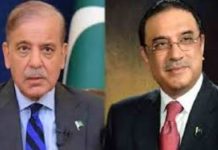Syed Ali Nawaz Gilani
(1st October 2021 is 72nd Founding Anniversary of the People’s Republic of China)
People Republic of China’s rise over the past two decades has reshaped the landscape of global politics. After joining WTO, China has rapidly transformed its economy from a low-cost “factory to the world” to a global leader in advanced technologies and also successfully transformed the supply chains around the globe with international diplomacy, leveraging its success to become the primary trading and development partner for emerging economies across Asia, Africa and Latin America.
China’s emergence as a global power has also created tensions within the ranks of Western block as it was early expected that China’s integration into the global economy would lead to liberalization at home and moderation abroad have proven overly optimistic for the western block, especially since President Xi Jinping rose to power in 2012.
China’s “quiet rise” has given way to more vocal expressions of great power aspirations and a more assertive international posture. Combined with Chinese military modernization program that has put Asia, as well as the United States, on notice that China’s economic power will have geopolitical implications. Now even the global spread of the COVID-19 pandemic has opened up opportunities for China to expand its influence, even as it has called into question both China’s credibility as a responsible stakeholder and the future of the supply chains that have fueled its economic success story.
The think tanks around world are covering regularly China in detail, and continues to examine key questions about what will happen next. Like can China sustain its economic miracle in the face of demographic and environmental challenges? Will China’s military modernization program change the balance of power in Asia and beyond? Is China seeking to reshape the rules-based international system to better reflect its interests, or is China’s goal to undermine and replace it? These types of questions are their topics of study in routine.
Although, China has a long history of aid and investment in the developing world. Now since 2013 President Xi Jinping’s Belt and Road Initiative (BRI) of global infrastructure investment is making inroads not only in Asia and Africa, but also Europe. BRI, at present has grown up in to one of the most attractive platform for international cooperation new pathway enabling China successfully attract more than 126 countries and 29 International organizations successfully which clearly shows its influence. China’s Military Modernization is another reason of its global presence and modernizations of its forces not only enhanced its professional capabilities to fight at ground air and in sea. The Chinese defense industry that has itself become a global player with confidence.
This is fact that in recent past the Chinese President Xi Jinping rose as a strong leader at world platform. The twin goals, to be achieved by 2049, are the “rejuvenation of the Chinese nation” both economically and territorially by reunifying with Taiwan. President Xi has reason to be grandiloquent. China’s $14tn economy is second only to the US; Standard Chartered reckons that on the basis of purchasing power parity, China will take the number one slot as early as next year. Chinese economy is expected to surpass the US at some point in the 2030s even some key areas earlier. China is also the world’s largest trading nation in goods. Chinese companies successfully improved there ranking every year at Global Fortune 500. It ranks in the world’s top countries for receiving and giving foreign direct investment and is the second biggest spender on research and development at some $300bn.
The Chinese Leadership in recent past has made a top priority in its economic planning through a number of high-profile initiatives, such as “Made in China 2025,” a plan announced in 2015 to upgrade and modernize China’s manufacturing in 10 key sectors through extensive government assistance in order to make China a major global player in these sectors. However, such measures have increasingly raised concerns that China intends to use industrial policies to decrease the country’s reliance on foreign technology.
The rise of China will undoubtedly be one of the great real time dramas of the twenty-first century. China’s extraordinary economic growth and active diplomacy are already transforming East Asia, and future decades will see even greater increases in Chinese power and influence. The famous historian Niall Ferguson has written that the bloody twentieth century witnessed “the descent of the West” and “a reorientation of the world” toward the East. Realists go on to note that as China gets more powerful and the West position erodes, two things are likely to happen: China will try to use its growing influence to reshape the rules and institutions of the international system to better serve its interests, and other states in the system.
This year 2021 was very important for the China as the leadership made important decisions, the adaptation of 14th Five-Year Plan in spring. It set the agenda for achieving China’s ambition to become more economically independent and for taking the next steps to modernizing China’s industry. Innovation strategies – not least in fields like climate protection and environmental technology – will be at the forefront. At the same time, spending on “national security” and investments in digital surveillance systems are likely to rise significantly.
Learning from the adverse experience of others, the Chinese leadership resolved to build a moderately prosperous society instead of some entrepreneurs becoming filthy rich while others languished in poverty. China’s eradication of poverty has been an enigma for foreign scholars. They have summarized the solution as “5Ds”— Determined Leadership, Detailed Blueprint, Development Oriented, Data-based Governance and Decentralized Delivery.
China’s role in world affairs is bound to increase, given its growing weight and relevance due to its population size, its role as the globe’s second, eventually largest economy, its military capabilities, its technological advances as well as its status as a Permanent Member of the UN Security Council. China’s growing impact therefore raises the central question whether it will uphold the very order that enabled it to rise to prosperity and eminence.
China undeniably plays a greater role in international affairs, and as this continues it is important to understand grand overarching questions like what its policies are, why they are, where change is occurring, and how they are changing.
(The writer is the Secretary-General of Pakistan China Friendship Association Khyber Chapter & Senior Media Consultant can be reached by email [email protected])

















